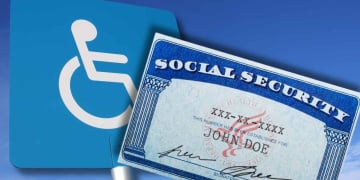Social Security Disability Insurance (SSDI) distributes monthly payments to people with work-related disabilities. This federal program operates based on prior contributions to the system that workers must make while in the labor market.
It requires a sufficient history of Social Security contributions to qualify. Beneficiaries must have medical conditions that prevent sustained employment.
There’s a fundamental difference with Supplemental Security Income (SSI), a program based on financial need. SSDI is funded through payroll taxes. It requires proof of inability to engage in “substantial gainful activity” (SGA). The amounts vary depending on the beneficiary’s previous contributions during their working life.
June 2025 SSDI Deposits: Complete Schedule
The Social Security Administration (SSA) establishes a calendar based on birthdates. It distributes payments on three specific Wednesdays each month. This tiered structure organizes the operational flow of the system. Beneficiaries receive deposits based on their specific birthdates. The method applies uniformly throughout the year.
For June 2025, the operational dates are: June 11 (born 1-10), then it is June 18 (born 11-20), and finally June 25 (born 21-31). The SSA maintains this chronological pattern consistently. No changes are anticipated in the scheduled distribution for that month. Direct deposits reflect this schedule without exception.
The average monthly benefit for SSDI beneficiaries is approximately $1,751.08, an increase from the previous year: this amount is quite similar to what more than 90% of disabled workers receiving this payment receive. On the other hand, the maximum monthly payment a beneficiary can receive is $4,018, a figure reserved for those with extensive work histories and high incomes subject to Social Security taxes.
When does the SSDI program money arrive in my bank account?
Direct deposits typically arrive in bank accounts around 12:01 a.m. on the due date. The SSA recommends waiting three business days to prevent delays. If payment persists, first contact the receiving bank. Then, notify the Social Security Administration so that appropriate investigations can be conducted, if necessary.
If you also receive Supplemental Security Income (SSI) payments in addition to your SSDI payments, the date changes: this group of beneficiaries receive their benefits on the third day of each month, except when that day falls on a weekend, when the payment is advanced to the nearest business day.




